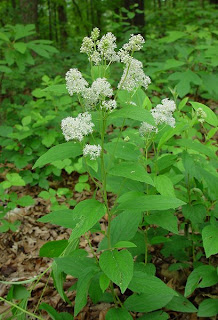CEDAR

Latin Name: Juniperus virginiana
Alternate Names: Juniper, Thuja, Eastern Red Cedar
Family: CYPRESSACEAE
Parts Used: Berries (blue), leaves.
Properties: Antiseptic, Antiviral, Astringent, Diuretic, Emmenagogue, Expectorant, Febrifuge, Hemostatic
Internal Uses: Arthritis, Asthma, Colds, Cough, Cystitis, Diabetes, Diarrhea, Dysentery, Gout, Incontinence, Sore Throat, Tuberculosis, Urethritis
Internal Applications: Tea, Tincture, Capsules
Cedar can be used to help prevent side effects from immunizations. The berries are used to treat diabetes, and leaves are used for diarrhea. The berries are being studied for their anti-cancer and anti-tumor properties.
Cedar can be used to help prevent side effects from immunizations. The berries are used to treat diabetes, and leaves are used for diarrhea. The berries are being studied for their anti-cancer and anti-tumor properties.
Topical Uses: Acne, Burns, Dandruff, Fungal Infection, Hemorrhoids, Herpes, Insect Repellent, Rheumatism, Warts
Topical Applications: Compress for burns, salves and liniments. Leaves are burned to purify the air and prevent the spread of infection. The essential oil is applied topically for acne, dandruff, warts, fungal infections, hemorrhoids, herpes, aching joints and as an insect repellent. Steam is inhaled during colds, flu and labor. Massage oil for rheumatism. Hair rinse for dandruff.
Culinary uses: Berries are used in cooking wild game and in making sauerkraut. Use the wood to smoke fish and game. The Berries are used in jams, pepper substitutes, beer and gin. The berries can also be roasted and made into a coffee substitute.
Energetics: Bitter, Pungent, Cool.
Chemical Constituents: Essential oil (camphene terpineol), flavonoids, resin, tannins, bitter (juniperin).
Contraindications: Avoid use in cases of inflammation. Do not use during serious kidney infections. Prolonged use may irritate kidneys and bladder. Avoid during pregnancy. Combine with demulcent or emollient herbs.
Comments: Essential oil of cedar has been used for incense, perfume and embalming. Berries take two to three years to ripen.
The common name Cedar includes the species Thuja occidentalis, Juniperis horizontalis, Juniperus scopulorum and Juniperis californica which are used interchangeably with Juniperus virginiana.
The common name Cedar includes the species Thuja occidentalis, Juniperis horizontalis, Juniperus scopulorum and Juniperis californica which are used interchangeably with Juniperus virginiana.

